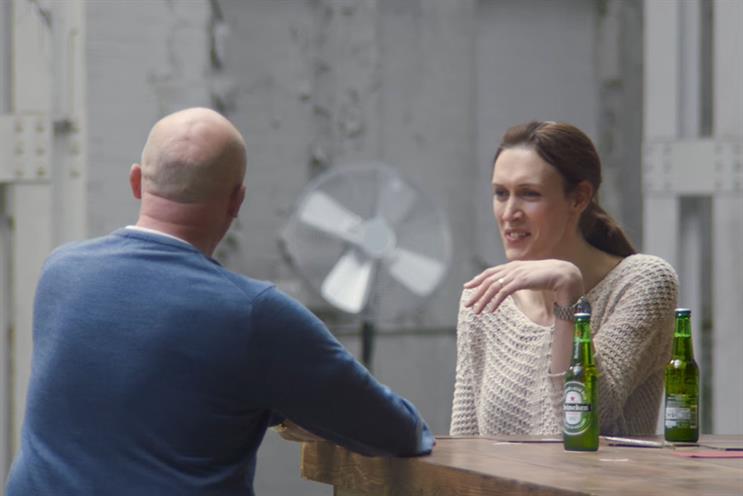
Coming out just weeks after Pepsi’s advertising disaster, Heineken’s "Worlds apart" film provoked strong responses. was – and it received an unsought-after Turkey of the week from ±±ľ©Čüłµpk10.
But was . Head of marketing Cindy Tervoort said 97% of the sentiment across the media, YouTube and Facebook comments had, in fact, been positive.
Tervoort said: "We’re open to criticism. 97% of the sentiment was positive. But obviously I’ve read also the things that you were referring to."
'False equivalence'
±±ľ©Čüłµpk10 gave the ad a "Turkey of the Week" despite this magazine applauding the effort to bring people with opposing views together. Digital editor Brittaney Kiefer said the ad "sets up a false equivalence between views such as feminism and sexism, and ends on a neat, glossed-over note."
However, the face-to-face aspect of the campaign - a partnership with - was crucial, Tervoort explained, because it was important to show people with strongly different opinions interacting in person as opposed to arguing over social media.
"Actually, social media is not really helping, and can’t replace face-to-face interaction. It’s easy to sit behind your Twitter, give all sorts of opinions and be quite aggressive.
"Even if you don't agree, because we won’t agree on everything, you at least start to create something you can build from."
The capacity for people to change their minds also came out in research conducted by the brand at the outset of the campaign.
"The core finding was that the true qualities of openness are tolerance and empathy. It sounds logical but it’s good to have that scientifically backed up," Tervoort said.
"It needs to be genuine to the territory and close to the DNA of your brand. And you at least need to try to understand the issue as much as possible before you try to get into it."




.jpg)
.jpeg)
